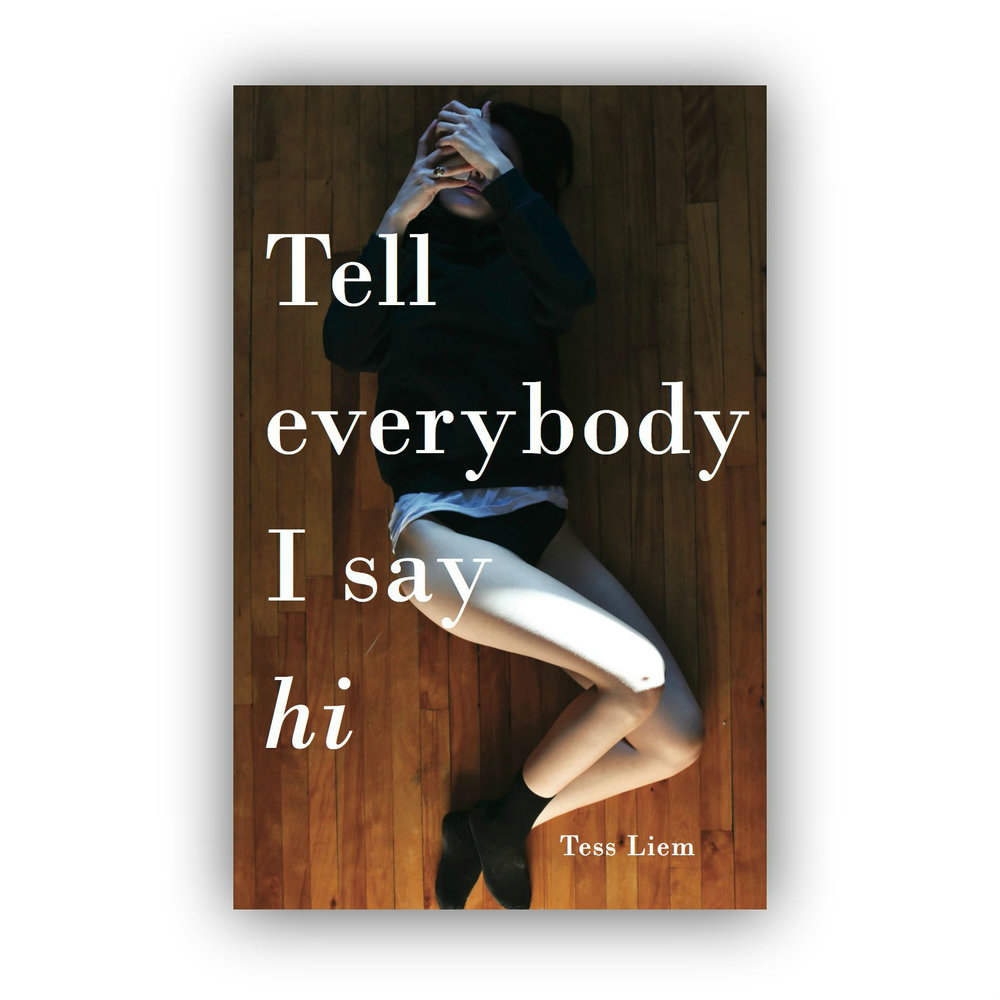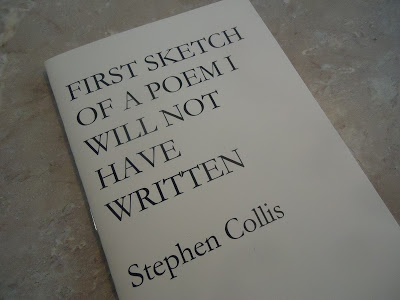
Reviews by Esther Chen
Tell Everybody I Say Hi by Tess Liem
Anstruther Press
Tess Liem’s first chapbook opens with a short piece that sets the tone for the rest of the collection. Liem writes “I, a compartment & careful, / invite you into hallways. / We pass rooms filled up / & shrug our shoulders at spaces.” At once intimate and thoughtful, Tell Everybody I Say Hi grounds itself in concrete details that are subtle and familiar—“The bed made, / curtains tied in a knot, / a towel hanging / on an open door”—using them to evoke emotions readers may feel they’ve felt before but couldn’t quite name. As we pass through the collection, Liem puts words to the feelings that drive us, arranging such details as texting with one hand, clipping fingernails, and having sex with our clothes on with an intentionality that captivates. Every moment in this book is amplified through the clean structure of the couplets and lists in which the poems take form. Behind every detail in this book lies a significance. As Liem writes in one poem: “everything I do is political.”

ASTRAL PROJECTION by Kyle Flemmer
above/ground press
Defined, “astral projection” refers to the term used to describe a willful out-of-body experience during which the astral body leaves the physical body and travels to the astral plane. The poems in Flemmer’s newest chapbook follow suit. ASTRAL PROJECTION reads curiously, pushing the limits of form, leaving the traditional body of what we think of when we think “poetry” in favour of white space, splatters of text, and hanging brackets. Reading through each piece is an exercise in letting go of the concrete, of certainty. The lines break unexpectedly, jumping from left to right and back again, at times reading both left to right and top to bottom. Mentions of Greek mythology add to the sense of otherworldliness. It is tempting to try to find visual patterns in the spaces of text and blankness, to try to find some familiar form or stanza in which to ground yourself. Instead, Flemmer creates in this book a unique space for the reader to float through the pieces, light.

FIRST SKETCH OF A POEM I WILL NOT HAVE WRITTEN by Stephen Collis
above/ground press
Stephen Collis’s chapbook FIRST SKETCH OF A POEM I WILL NOT HAVE WRITTEN is comprised of a single, long, twisting poem that oscillates between passionate and resigned, rambling yet brimming with a sure intention. The poem opens by cutting right to the chase, setting the scene of “a universe we / No longer have to search the limits of / the revolutionary subject lies elsewhere” and asks “can we revive?” The tone is restless, that of a racing, intelligent mind: “Late now. Sound of the furnace. Cathy out. Girls asleep. / Take apart all ideas plans and structures again and again.” There is a throughline of righteous anger: at contemporary culture, at the recursive loop pattern of living, at the corruption of art. Open brackets following open brackets and repeating loops of text add to the sense that the speaker is ruminating over these musings, spiralling deeper and deeper, opening box after box. Throughout the piece, Collis maintains a stream of consciousness that is the opposite of messy, the lines hold a straight-edged coherence, clean yet urgent. While a shorter book than other chapbooks out there, Collis’s is an important piece that drives one to question their own artistry (“what is poetry if money is information?”), to pick apart and think, to write and write and write. “Writing as problem solving…” Collis pens at one point, “…in the age of insoluble problems.”

Esther Chen is a writer currently pursuing her BFA in Creative Writing at the University of British Columbia. More of her work can be found her website at estherchen.tumblr.com or on Instagram @softcomix